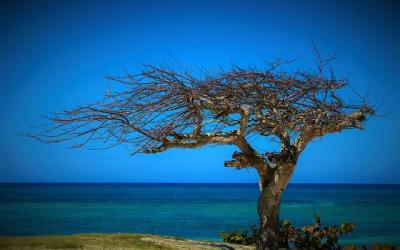PROCEDIMIENTO PARA LA EVALUACIÓN DE LOS ASPECTOS ECONÓMICOS, SOCIALES Y AMBIENTALES DEL MANEJO AGROECOLÓGICO DEL CACAO. ESTUDIO DE CASO BARACOA, CUBA
PROCEDURE FOR THE EVALUATION OF THE ECONOMIC, SOCIAL AND ENVIRONMENTAL ASPECTS OF AGROECOLOGICAL MANAGEMENT OF COCOA. BARACOA CASE STUDY, CUBA
Fecha recibido: 30/07/2020 | Fecha publicado: 29/04/2021 | Fecha corregido: 29/04/2021 |Autores
Happy Salas Fuente, José Lescaille Acosta, Yurelkys Fernández Maura, Igor Bidot Martínez
Resumen
El cacao en Cuba constituye uno de los rubros potenciales para la diversificación de las exportaciones, y específicamente el municipio Baracoa en la provincia de Guantánamo aporta el 70% de la producción. Sin embargo, en su cadena de producción existen un conjunto de insuficiencias que limitan la obtención de altos rendimientos, de un producto con calidad y ecológico. Como respuesta a esta realidad el estado cubano ha establecido e implementado acciones de manejo agroecológico, pero se adolece de instrumentos o herramientas que posibiliten la valoración de la sostenibilidad de este agroecosistema. En ese sentido, el presente artículo propone un procedimiento para la evaluación de los aspectos económicos, sociales y ambientales del manejo agroecológico del cacao, empleando la metodología MESMIS para incrementar la información del potencial genético del cacao tradicional cubano, optimizar el proceso de post-cosecha, y los aspectos económicos, sociales y ambientales. La aplicación del procedimiento permite revelar los aspectos significativos para el diseño de políticas de desarrollo rural agroecológicas, especialmente en aquellas zonas con una importante presencia de este cultivo.
Palabras clave: cacao, agroecología, procedimiento, evaluación, sostenibilidad.
PROCEDURE FOR THE EVALUATION OF THE ECONOMIC, SOCIAL AND ENVIRONMENTAL ASPECTS OF AGROECOLOGICAL MANAGEMENT OF COCOA. BARACOA CASE STUDY, CUBA
Abstract
Cocoa in Cuba constitutes one of the potential items for export diversification, and specifically the Baracoa municipality in the province of Guantánamo contributes 70% of production. However, in its production chain there are a set of insufficiencies that limit obtaining high yields, a quality and ecological product. In response to this reality, the Cuban state has established and implemented agroecological management actions, but it lacks instruments or tools that make it possible to assess the sustainability of this agroecosystem. In this sense, this article proposes a procedure for the evaluation of the economic, social and environmental aspects of the agro-ecological management of cocoa, using the MESMIS methodology to increase the information of the genetic potential of traditional Cuban cocoa, optimizing the post-harvest process, and the economic, social and environmental aspects. The application of the procedure reveals the significant aspects for the design of agroecological rural development policies, especially in those areas with a significant presence of this crop.


